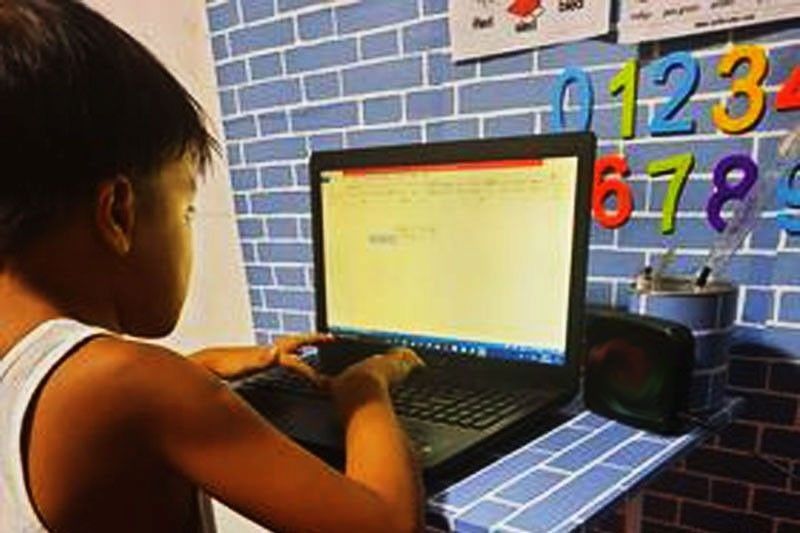DepEd denies massive dropouts over blended learning

MANILA, Philippines — The Department of Education (DepEd) has disputed claims that many students have dropped out in the middle of the school year due to blended learning.
“There has been no clear indicator of massive dropout attributed to blended learning, based on the assessment conducted by our field officials,” the agency said in a statement Thursday.
“In our weekly joint executive-management committee meeting, no regional director reported alarming dropout details in their respective areas. This was supported by field offices’ report and consultations with learners and their parents,” it added.
The Alliance of Concerned Teachers (ACT) earlier warned against a looming massive dropping out of students, citing reports of unclaimed or unanswered modules, as well as dwindling attendance to online classes.
But according to DepEd, learners did not drop out from school but either shifted from one mode of learning to another or migrated from one geographical location to another.
“Learners’ migration is observed due to the economic impact of the pandemic. Data showed that students have either moved from city to provincial schools or from private to public schools,” it said.
“Other learners, meanwhile, have decided to shift from solely modular to blended learning, wherein they can also tap into television, online and radio resources available at their respective schools,” it added.
The agency also cited the slow return of students to schools after the holiday season, noting that this is something that has been observed annually.
DepEd said it is continuously implementing academic ease measures to help families, students and teachers who are still adjusting to the distance learning setup.
“Public schools are practicing leniency in the completion and submission of activities by learners. They have also expanded their respective mental health and socio-emotional wellbeing support programs,” said the agency.
“Across the level of governance in DepEd, we are also collaborating with various authorities and external partners to strengthen our pandemic response initiatives. In this regard, we would like to remind the public not to draw conclusion from misleading claims or on isolated cases,” it added.
Responding to DepEd, the ACT challenged the agency to release data on the supposed dismal participation of many students in distance learning classes and turning in of class requirements.
“Many students have barely shown up in online classes or have hardly submitted their class requirements. They may not have formally dropped out of class, but they are essentially not participating and not learning. How do we see this situation now?” said ACT secretary general Raymond Basilio.
“Our teachers are very much worried with the waning student participation in the government’s distance learning program but are only giving out incomplete marks instead of failing grades or delisting students from the rolls as we understand their difficulties under distance learning amid the pandemic. We were hoping that the Department Education would be equally concerned about the matter and act swiftly to address the grave education crisis that we face today,” he added.
A survey conducted by the Movement for Safe, Equitable, Quality and Relevant Education showed that 70.9 percent of 1,395 of teacher respondents are not confident that the competencies set by DepEd under distance learning are actually being developed.
Only four percent said that all of their students are keeping up with the lessons, while 57 percent said that a segment of their class is falling behind.
Asked how many out of every 10 of their students are not able to keep pace, 31 percent said one to three, 15 percent said four to six and 10 percent said seven or more are behind.
- Latest
- Trending




























